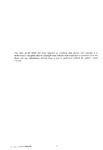Team player styles, team design variables and team work effectiveness in Egypt
| dc.contributor.author | El-Kot, Ghada Awed Hassan | |
| dc.contributor.other | Plymouth Business School | en_US |
| dc.date.accessioned | 2011-09-29T13:01:38Z | |
| dc.date.available | 2011-09-29T13:01:38Z | |
| dc.date.issued | 2001 | |
| dc.identifier | Not available | en_US |
| dc.identifier.uri | http://hdl.handle.net/10026.1/792 | |
| dc.description.abstract |
The literature has revealed few studies of management in Arab countries in general and particularly in Egypt. Many Egyptian organisations implemented the team concept a number of years ago, however, there do not appear to be any studies investicitaýt inc",D team work effectiveness in Egypt. The literature review and the findings of a pilot study emphasised the need for empirical research in team work in Egypt. Team effectiveness models are examined in order to identify the factors that may enhance team effectiveness in Egypt. Team behavioural models are also examined to identify the importance of balanced team membership and its relationship with team effectiveness. These models are examined with the aim of developing a team work effectiveness model to be tested in a sample of Egyptian organisations, which hopefully will inform the development of effective teams in the Egyptian context. The literature review revealed some significant predictors of team effectiveness such as team player styles, team design variables and team beliefs, which would enhance team effectiveness. The literature findings were used to develop a model for team effectiveness in Egypt. This model includes team player styles, team design variables (team autonomy, team size, team heterogeneity, team leader behaviour, team managerial support, team vision and team psychological safety), team beliefs (team potency and team efficacy) and team effectiveness (team performance outcomes). The proposed model for team work effectiveness in Egypt is tested in two larcre successful Egyptian organisations that use teams working. Data were collected using a questionnaire in both organisations with interviews with managers carried out prior to the administration of the questionnaire in both companies. In addition translation procedures and pilot studies were carried out before running the main studies. Two levels of analysis, the individual and the group level, were used and a range of statistical procedures and techniques such as descriptive statistics, estimates of reliabilities, factor analysis, correlation, t-test and regression analys's were employed. The empirical findings from both companies suggested re%'Isions to the proposed models for team effectiveness in Egypt. Another supplementary study was carned out alonCgý with the main study in the larL- c two companies with alm Of investicratinLy and examining one potential antecedent vanable in the 0 It) proposed model for team work effectiveness in Egypt. This study ývasc oncerned with testinc:- Dr the psychometnc properties of the Parker Team Player Survey that was used in this thes's, and I IV also to investigate any relationships between team player styles and the InclIvIdual dIfference vanables in Egypt. The findings from the main studies provided support for some variables in the proposed model for team work effectiveness in Egypt. The findings revealed the significant effects of some of the design variables on team effectiveness in Egypt. The finding's do not provide sufficient evidence to confirm or refute the assumption that team player styles is necessary condition for team effectiveness, however, the findings revealed its role in its relationship with other variables in the model. An amended model for team work effectiveness is developed based on the literature and on the findings of the main studies to include team player styles, team design variables (team autonomy, team size, team structure and team reward), team beliefs and team effectiveness (subjective and objective measures). The amended model also includes some antecedents such as individual differences, ore-I'anisational culture and the Egyptian culture. The amended model is sugZg-): ested for further testingZID and considered as a basis for further research in team work in Egypt. | en_US |
| dc.language.iso | en | en_US |
| dc.publisher | University of Plymouth | en_US |
| dc.title | Team player styles, team design variables and team work effectiveness in Egypt | en_US |
| dc.type | Thesis | |
| dc.identifier.doi | http://dx.doi.org/10.24382/4465 | |
| dc.identifier.doi | http://dx.doi.org/10.24382/4465 |
Files in this item
This item appears in the following Collection(s)
-
01 Research Theses Main Collection
Research Theses Main


